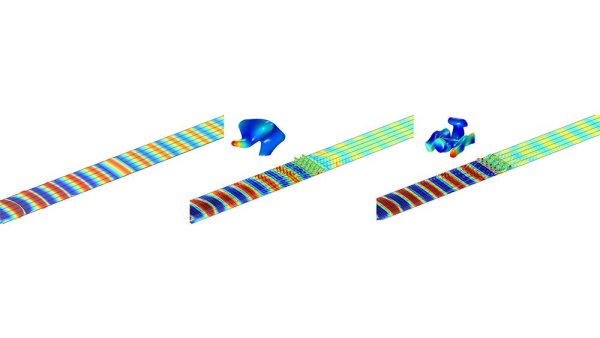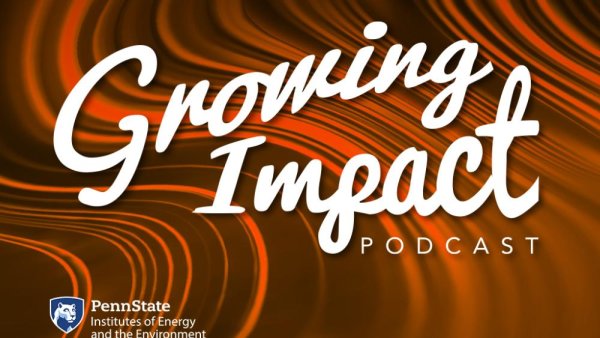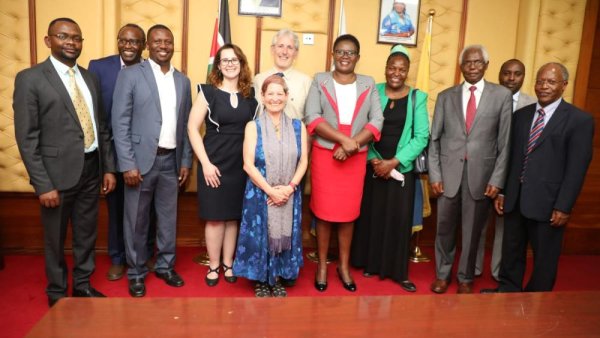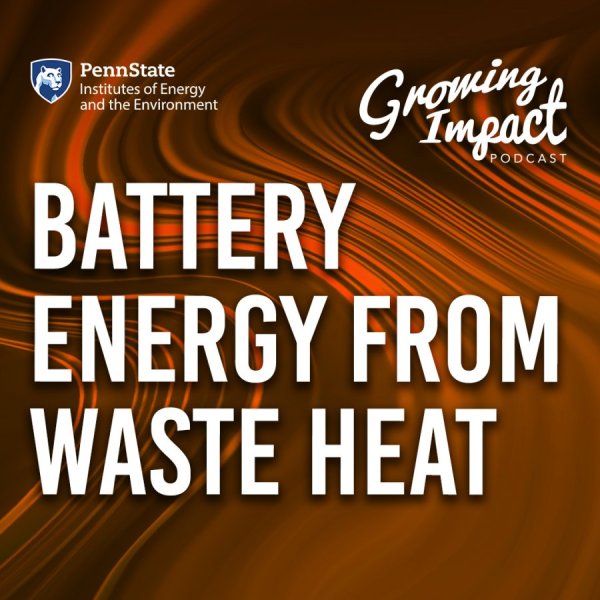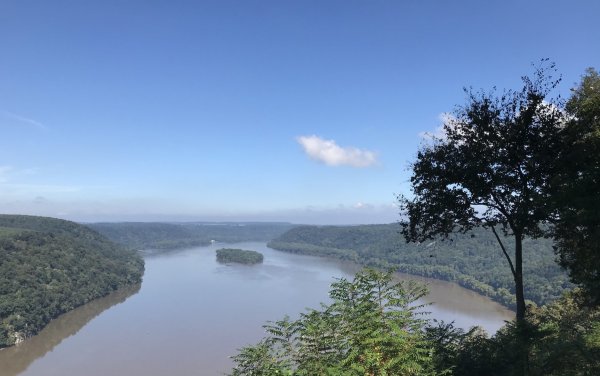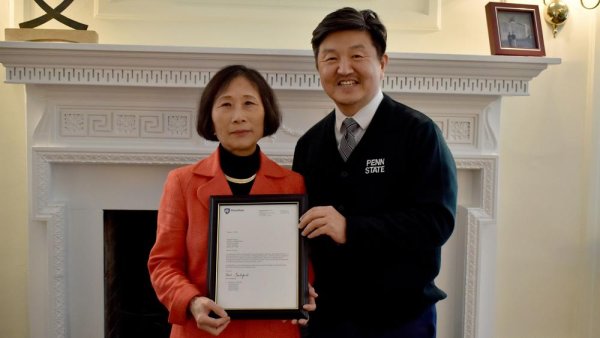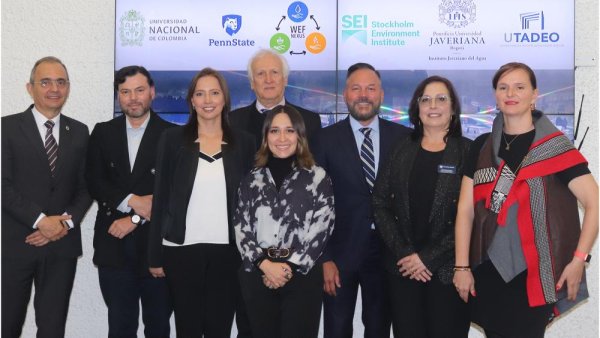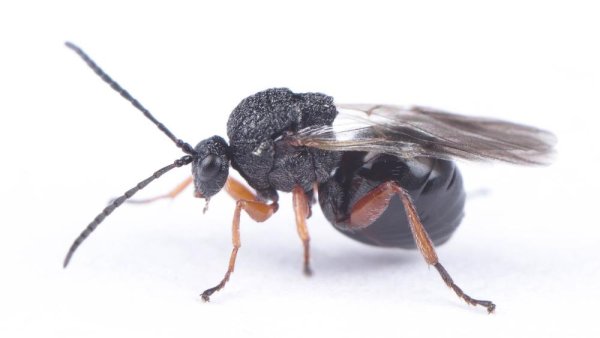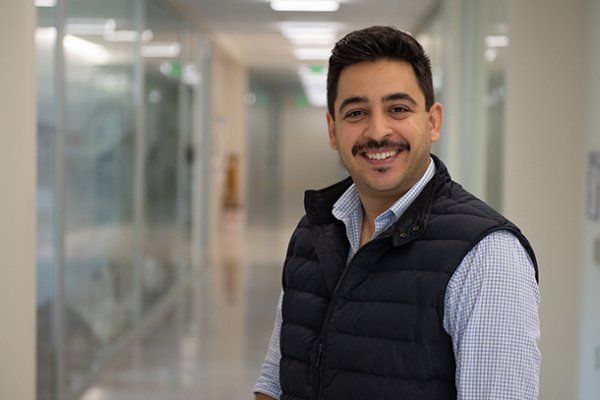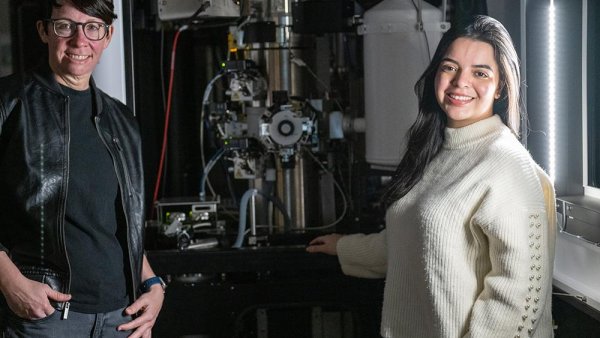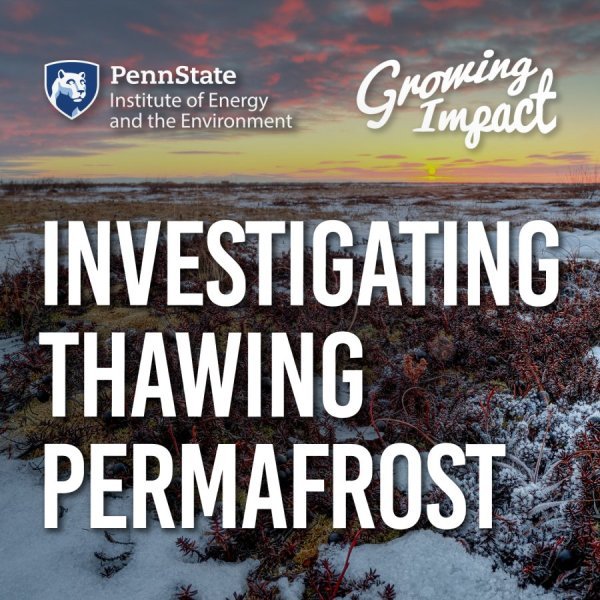Engineers design metasurfaces to help control surface wave propagation
| psu.edu
Penn State College of Engineering researchers have used a strategic design approach called the topology optimization method to design metasurfaces that control surface waves.
'Growing Impact' podcast examines converting waste heat into battery energy
| psu.edu
The latest "Growing Impact" episode discusses how projects aiming to advance battery power and energy output resulted in promising chemical combinations that could improve the conversion of low-grade waste heat into electrical power.
New partnership will address health and food safety challenges in Kenya
| psu.edu
Representatives from Penn State, Meru University of Science and Technology, and Meru County in Kenya signed a memorandum of understanding in a ceremony in Kenya to formally commence their new partnership. This collaboration also will involve the Technical University of Denmark.
Group adventures into the wilderness can promote personal growth
| psu.edu
Explore what decades of experience and research have taught Pete Allison, associate professor of recreation, park, and tourism management, about facing physical, psychological, and emotional challenges in nature with a self-reliant team.
Growing Impact: Battery energy from waste heat
| Featuring Derek Hall
Waste heat has been a challenge that scientists and engineers have been pondering for decades. What can be done with this lost energy and can it be harnessed in a useful way? As combustion and technology improved, the percentage of waste heat has decreased, but it is estimated that up to 50% of all industrial energy is lost through waste heat. If that heat could captured or used in a meaningful way, society would move closer to a circular economy. While Derek Hall and his team explored how different battery chemistries might change a battery’s power and energy output, they discovered new opportunities for turning waste heat into stored electrical energy.
Climate change in Pa.: The flood-prone Susquehanna River watershed poses a widespread challenge
| stateimpact.npr.org
Pennsylvania’s emergency management and environmental experts say flooding is our top risk — and it’s not the Susquehanna River itself that they’re most worried about. They are floating a number of possible solutions.
Pingjuan Werner named distinguished professor of engineering
| psu.edu
Pingjuan Werner, professor of engineering at Penn State DuBois, has been conferred the status of distinguished professor, one of the highest professorial distinctions at the University.
Colombia-USA WEF Nexus Alliance announces partnership with Amazon
| psu.edu
The Colombia-USA Water-Energy-Food Nexus Alliance, a research coalition including Penn State, has launched a partnership with Amazon to support a project focused on the Chingaza Paramo, a nationally protected park and the most important Bogotá watershed, to help promote water security and benefit local communities.
PennTAP to host TEC Talks Forum March 23 at Penn State Hazleton
| psu.edu
The Pennsylvania Technical Assistance Program (PennTAP) at Penn State will host a TEC Talk Forum on energy technologies and transitions on Thursday, March 23, at Penn State Hazleton.
Wasps harness power of pitcher plants in first-ever observed defense strategy
| psu.edu
As the saying goes, “When life gives you lemons, turn that tartness into little translucent balls in which to grow your young.” At least, that’s how the saying goes for a tiny insect called a cynipid wasp, whose larvae were recently discovered inducing plant growths called galls that contained acidity levels akin to lemons.
Amir Sheikhi to participate in National Academy of Engineering symposium in Japan
| news.engr.psu.edu
Amir Sheikhi, assistant professor of chemical engineering and of biomedical engineering at Penn State, was invited to participate in the 2023 National Academy of Engineering Japan-America Frontiers of Engineering (JAFOE) symposium. The symposium will take place July 17-20 in Tokyo.
Guarding the genome: Researchers uncover full 3D structure of p53 protein
| psu.edu
The tumor suppressor protein p53, known as "the guardian of the genome," protects the body’s DNA from daily stress or long-term damage by triggering the cells to make repairs or to self-destruct. For the first time, a Penn State-led team of researchers uncovered the complete structure of the p53 protein using patient samples. They also investigated how mutation-induced changes in the p53 structure can impact different cancers.

